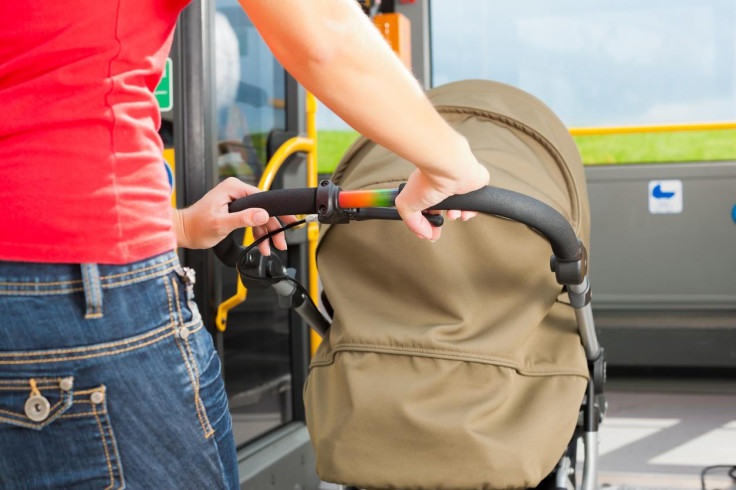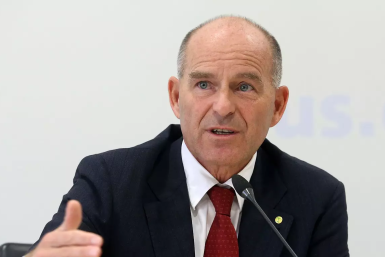Mumspreading: Mothers with prams do not have rights over disabled people
I've seen mothers refuse to move on buses when a person in a wheelchair gets on.

A disabled bus passenger in Wetherby, England has won the right of wheelchair users to have priority over prams and pushchairs, on 18 January 2017. The Supreme Court ruled that the bus driver, of operator FirstGroup, should have forced a mother with her baby in a pushchair to give up the space designated for wheelchairs instead of leaving Doug Paulley behind at the bus stop.
It is extraordinary that it got to the Supreme Court in the first place. Mr Paulley won his case at county court but this was overruled by the Court of Appeal, which said the needs of both the disabled and parents with buggies should be balanced. The Supreme Court's ruling is a victory for common sense, and it seems inarguable that people in wheelchairs, who have little choice about their mode of travel, should take precedence. It is surely obvious that the needs of parents and the disabled are not equivalent.
It should be obvious, but that doesn't stop buses becoming the scene of daily stand-offs between wheelchairs and buggies. I have witnessed parents refusing to make way for a wheelchair user, even when the bus driver has asked them repeatedly and has been forced to turn off the engine and delay the whole journey until they comply. Sometimes they move but do so grudgingly and noisily, as if this inconvenience were the worst thing in the world.
As someone who used to regularly battle to get on a busy London bus with my baby in a pushchair, I know it is hard to find the space. It is all the more stressful when it's raining and the child is crying. It is often impossible – particularly when the child is very young and not yet old enough for the easily folded Maclaren buggies – to take the baby out to be carried, fold away the pram and somehow find space for the shopping that was in the netted compartment below. There are just not enough hands for this task. But the point is that some children can be carried, and some pushchairs can be folded. Wheelchair users don't have such flexibility.
If carrying the child is impossible, parents should get off the bus and wait for the next one to come along – as I often did. If they have already paid for their journey, they should demand a ticket from the driver to let them go for free on the next bus. Parenthood is about making compromises and gritting your teeth through inconvenience. Because inconvenience is the worst extent of moving out of the way for a wheelchair.
This menace of mumspreading is not just confined to refusing to move on a bus: they view it as a God-given right to have priority for their extra-wide pram on every pavement, busy supermarket or train carriage.
Yet there are too many parents – the majority of them mothers, I'm afraid to say – who think their child, and his or her associated paraphernalia, trump everything else in the daily grind of navigating the outside world.
This menace of mumspreading is not just confined to refusing to move on a bus: they view it as a God-given right to have priority for their extra-wide pram on every pavement, busy supermarket or train carriage. Recently, while trying to get my shivering daughter dressed after a swimming lesson, I had to ask a mother to move her toddler whom she had deposited on a changing room bench (where there should have been room for four people) and was now lying on her front, watching something on her iPad, toys and clothes strewn the entire length of the bench.
I do not have a disability, so of course it was easy for me to put up with the inconvenience of waiting to get a space. I am also sure I have been guilty of some mumspreading of my own in the past.
The problem is the contrast between how society views parents of young children and people with disabilities. Mothers have an elevated status and are a very vocal lobby both in the community and nationally. Disabled people are too often ignored – particularly by public transport companies who do not do enough to cater for their needs. The treatment of Anne Wafula Strike, the Paralympian who was recently forced to wet herself on a train because there was no accessible toilet, is by no means an isolated case. This Supreme Court ruling should send a strong message to mumspreaders everywhere.
Jane Merrick is a freelance journalist and former political editor of The Independent on Sunday. She writes an allotment blog, www.heroutdoors.uk. Follow : @janemerrick23
© Copyright IBTimes 2024. All rights reserved.






